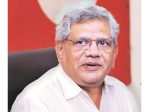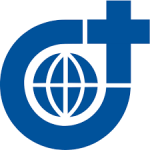By Irudhaya Jothi
Aizawl, June 19, 2023: Each year on June 20, the world celebrates the strength and courage of people forced to flee their home country to escape conflict or persecution as World Day of Migrants and Refugees.
I encounter Refugees and Internally Displaced People (IDPs) in close proximity this year.
I come across people who have narrowly escaped death from the clutches of rioting opponents from the neighbouring state of Manipur and Myanmar, India’s eastern neighbor.
On June 2, I had the opportunity to celebrate the Eucharist for a group of 20 ‘Zo’ people in Aizawl enroute to Delhi. Some of their sharing was heart-wrenching.
Michael was in tears as he shared how his three-story building was burned to ashes beside his own school.
Michael had a school with nearly 500 students of which around 45 students were to appear for the tenth-grade public examination this year. Their dreams and hopes have been shattered. He is among the lucky to escape mob lynching or gruesome murder by the rioting war group in the Churachandpur district of Manipur.
From the neighbouring forest, he witnessed the rioting group in the presence of the police commandos first looted the house, then set it on fire and danced to the beats of drums as the house turned into ashes.
According to reports available more than 50,000 people have been displaced in the ethnic violence between the Kuki and Meitei communities that erupted in Manipur on May 3. Of these, about 10,000 displaced Kukis have fled to Mizoram.
I met the refugees and migrants for the first time in close proximity, who are in the grip of fear, frustration and deep anger against the perpetrators of the heinous crime. They seem clueless about a solution.
When I look around the world, I find such distressing scenarios all over.
This year, the UN refugee agency United Nations High Commissioner for Refugees (UNHCR) announced the theme of World Refugee Day, “Hope away from home.”
UNHCR has come out with the global trends on Refugees and Internally displaced persons. The data though given till the end of 2022, it is a valuable source to understand humanity in crisis.
According to the UNHCR global trend 108.4 million forcibly displaced people as a result of persecution, conflict, violence, human rights violations and events seriously disturbing public order. This represents an increase of 19 million people compared to the end of 2021.
Out of these, 71.1 million were IDPs, 62.5 million as a result of conflict and violence, and 8.7 million as a result of disasters.
New and ongoing conflicts continue to force people to flee in 2023, including a result of the conflict in the DRC and Sudan, widespread violence in Myanmar and persistent insecurity and drought in Somalia.
The number of refugees worldwide increased from 27.1 million in 2021 to 35.3 million, the largest yearly increase ever recorded. The increase was largely due to refugees from Ukraine fleeing the international armed conflict in their country.
About 52 percent of all refugees came from just three countries: Syria (6.5 million), Ukraine (5.7 million) and Afghanistan (5.7 million).
Five countries report the largest IDP population: Ukraine (16.8 million), Syria (6.8 million -1 in 3 of all Syrians are still IDPs), DRC (4 million), Ethiopia (2 million), Myanmar (1 million).
As many as 70 percent refugees are hosted by neighboring countries, which is unlikely to change, the report says.
The UNHCR states, “Refugees are among the most vulnerable people in the world. The 1951 Refugee Convention, supplemented by its 1967 Protocol, help protect them.
They are the cornerstone of refugee protection and the key legal documents that form the basis of UNHCR’s work.
The 1951 Convention provides the internationally recognized definition of a refugee and outlines the legal protection, rights and assistance a refugee is entitled to receive.
The core principle of the 1951 Convention is nonrefoulement, which asserts that a refugee should not be returned to a country where they face serious threats to their life or freedom.
The document outlines the basic minimum standards for the treatment of refugees, including the right to housing, work and education while displaced so they can lead a dignified and independent life.
It also defines a refugee’s obligations to host countries and specifies certain categories of people, such as war criminals, who do not qualify for refugee status.
In addition, it details the legal obligations of the States that are party to one or both of these instruments.
India is one of the few liberal democracies that did not sign, support or ratify the international convention which governs how nations should treat refugees. India is neither a signatory to the 1951 United Nations Refugee Convention nor to its 1967 Protocol.
A couple of reasons for the decision are; India being the largest democracy in the world, having a multi-party system and with various diverse cultures and traditions did not want any outside interference in its internal matters as it is already dealing with issues within the country.
Refugees affect the political stability of the country and are oftentimes used as vote banks by politicians in short India wants to protect her sovereignty.
Holy Father Pope Francis sent out a message for this special day recommending that people are “Free to choose whether to migrate or to stay.”
It is also the theme for the year 2023 as we the 109th World Day of Migrants and Refugees (WDMR).
Manipur needs an immediate intervention; we cannot sit and watch such a genocide taking place at this time in history in India.
Should a Truth and Reconciliation commission be set up immediately and peace given a chance? Is the yearnings of many peace loving citizens of India!










